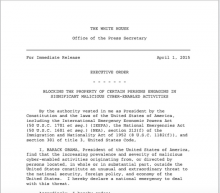Edward Snowden: Don't censor your pics
People shouldn't hold back on sending racy photos of themselves online for fear the images might be scooped up by government spies, former NSA contractor Edward Snowden has said.
Snowden appeared for a sit-down interview Sunday night on HBO's "Last Week Tonight with John Oliver." The host traveled to Russia to do the interview in person.
To make the issue hit home for his TV audience, Oliver asked Snowden which government programs might allow spies to access people's "d**k pics." Many of the programs would, Snowden said, but that shouldn't cause people to hold back.













































































